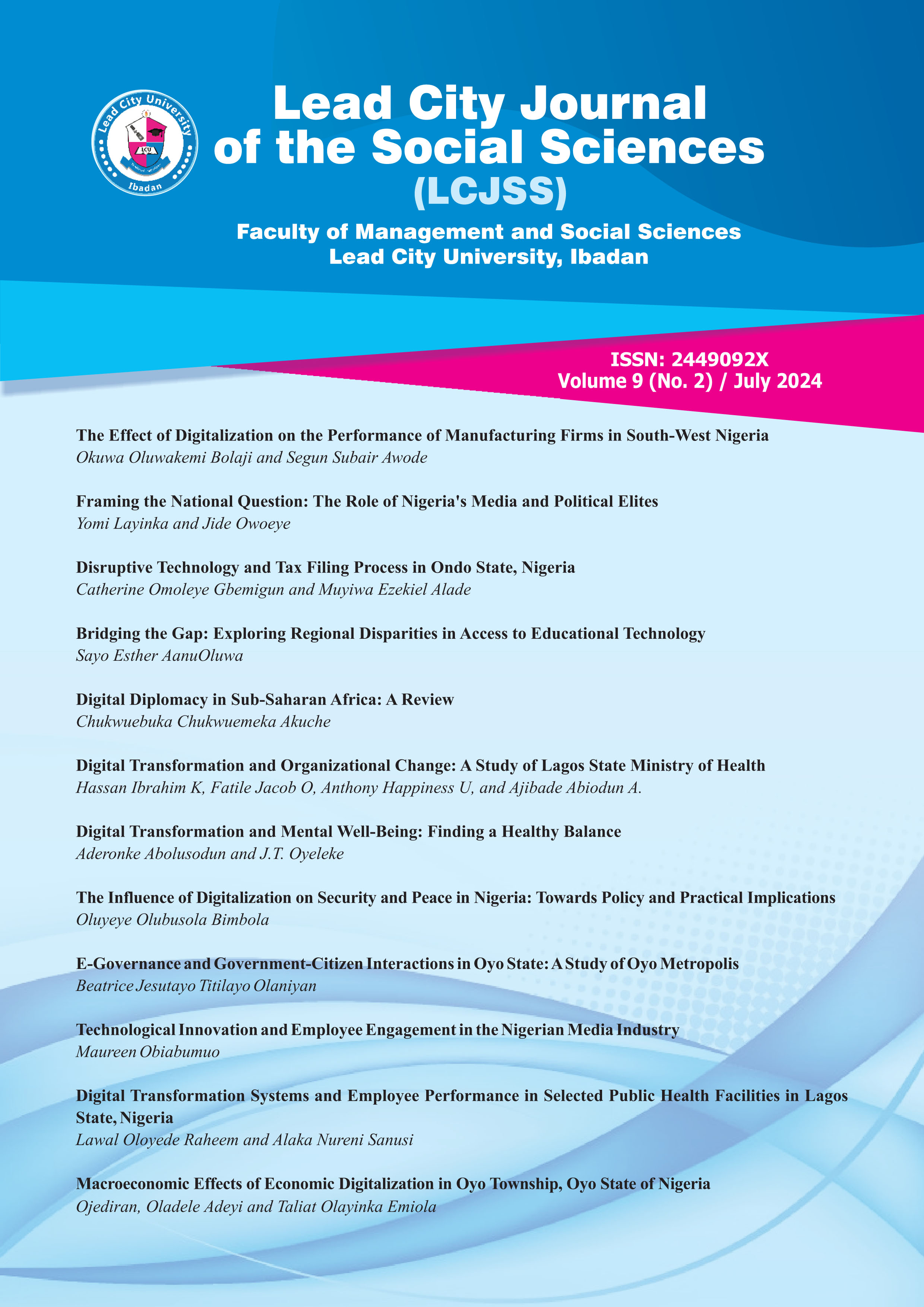Digital Transformation and Organizational Change: A Study of Lagos State Ministry of Health
Keywords:
Digital Transformation, Organisational Change, Nigeria Public Service, Service Delivery, Citizen EngagementAbstract
Nigeria's public service has traditionally been characterised by bureaucratic processes, paperbased documentation, and limited integration of technology. Hence, the need to embrace digital
transformation has become a critical element for public services to enhance efficiency, service
delivery, and citizen satisfaction. However, inadequate infrastructure, limited digital skills
among public servants, resistance to change, and cybersecurity concerns have become
concerns. In view of this, the study examined digital transformation and organisational change
in the Lagos State Ministry of Health. The study employed the pragmatism philosophy and
quantitative approach in data collection and analysis. A survey research design was used.
Seventy-seven (77) out of ninety-eight (98) instruments administered for the study were found
usable. The content analytic approach was used in analysing the collected data. Findings
revealed that the Ministry of Health's embrace of digital transformation has streamlined
organisational processes, reduced bureaucracy, improved data management, enhanced service
delivery, and increased citizen engagement. Additionally, it enables the government to leverage
data analytics for evidence-based policymaking and resource allocation. Conclusively, the
successful implementation of digital transformation necessitates more than just technological
advancements. It requires a fundamental shift in organisational culture within the public
service, as it has the potential to become more efficient, citizen-centric, and responsive to the
evolving needs of Lagosians. The study recommended stakeholder engagement, capacity
building, and the development of robust policies to ensure inclusive and accountable digital
governance.

